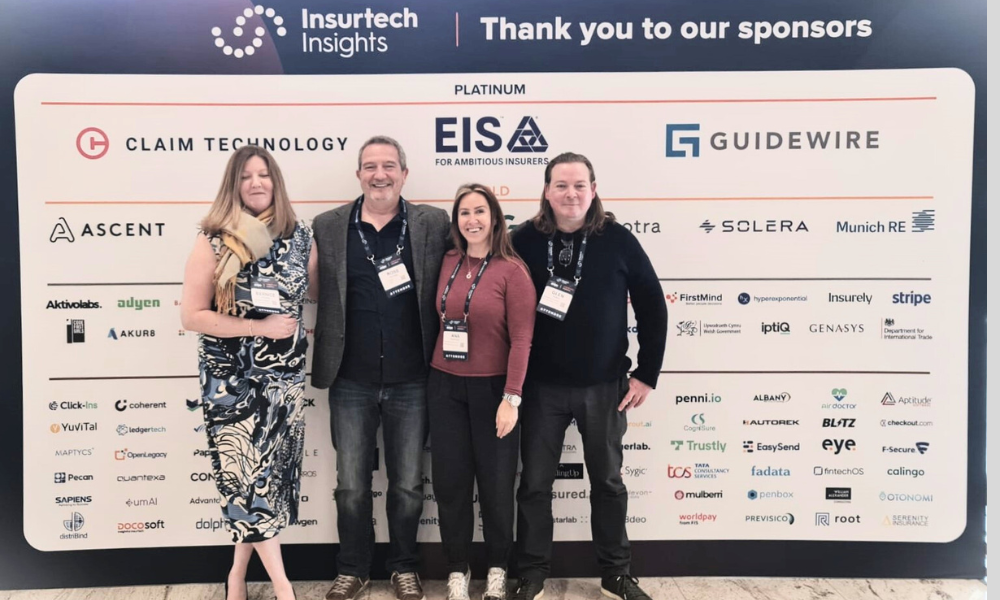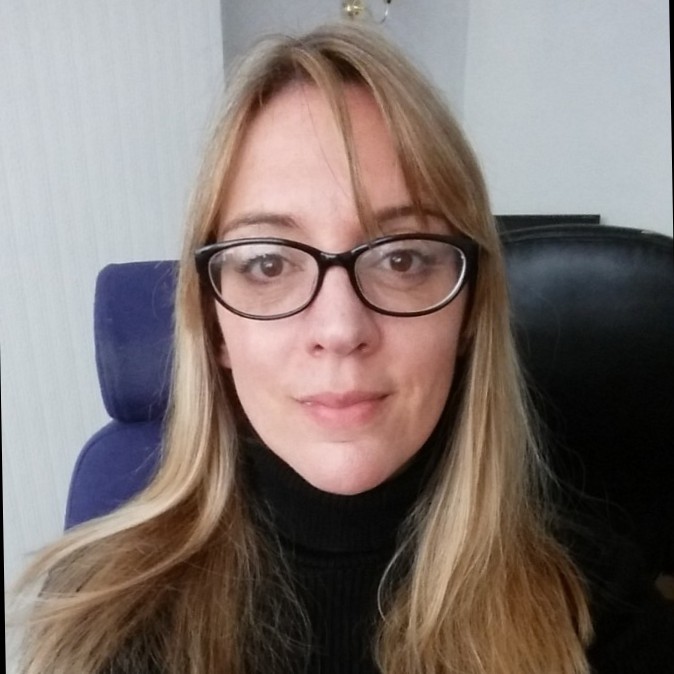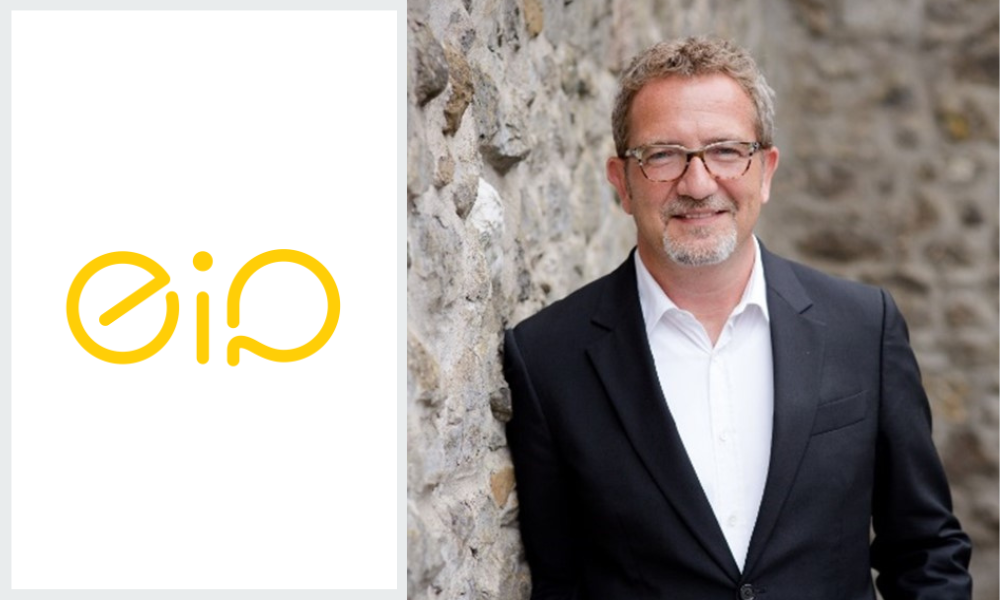Ross Sinclair is a CEO and co-founder with long-term vision. Back in the early noughties, when insurtech was a distant and obscure concept, he saw the market potential in harnessing cutting-edge technology to initiate change within the insurance space.
He has been a driving force in the realm of mobile device insurance for decades, operating across a broad spectrum of some 30 countries. His journey began with a solid foundation in insurance, where he honed his expertise before stepping into a role on the board of Carphone Warehouse PLC.
As one of the co-founders of EIP, Sinclair has played an integral part in the company’s transformative journey. Through his leadership, EIP has evolved from being a consulting company in the mobile device insurance space to emerge as an established market leader in software provision.
Insurtech Insights finds out more.
Tell us about your role and what it involves on a day to day basis – and how it is evolving?
I would love to give one of those ‘day in the life of a CEO’ answers which starts;
04.00am – jump out of bed and make 4 egg-white and kale smoothie
04.30am – run 10kms in bare feet
05.30am – close global mega-deal
06.00am – …
You get the idea. Unfortunately the reality is a little more ‘operational’.
At the core of the CEO’s role is the mission to recruit very good people and try to ensure that they are all pointing in the same direction. Sounds relatively easy, but in a high-growth business, resources are always stretched and priorities change regularly meaning that management need transparency of – and inclusion in – board decision-making, in order to understand and support shifts in direction. EIP is pretty good at this. Everyone is on the same page, and as a result we have a highly agile business that responds quickly and effectively to challenges and opportunities.
At CEO level, I have the company’s key functions reporting to me but I also have responsibility for shareholder relationships and comms and our broader investor strategy. The Insurtech investment market is very fluid at the moment and it’s important that we track this closely to ensure that we are optimally positioned for important future fund raises. As an example, a couple of years ago AI wasn’t really spoken of much in terms of Insurtech value, but now having an AI strategy is critical to demonstrate a viable future.
Shareholders, of course, demand a return, and balancing those expectations with the cost of high-growth ambitions means that the company’s vision has to be clearly and regularly communicated – and on-target.
At an operational level, I also directly manage the business development team, so a typical week starts with a relatively lively Monday morning team ‘standup’ on video. By definition, excited BD people like to talk, so keeping a one-hour call within the allotted time slot is a challenge worthy of any CEO.
You launched EIP in 2004 – quite a while before insurtech was an up and coming space. What prompted that move? How did you foresee how things would develop?
Originally EIP was formed as a consulting company in the mobile device insurance space, capitalising on the unique experience that I gained whilst on the insurance board of Carphone Warehouse Group and rolling out device insurance across Europe at a time when this product was relatively unknown.
In 2010 we started to build software for that same sector recognising that the biggest blocker to delivering these programs was connecting the various tech platforms of the supply chain. We created a single web-based platform that all of the stakeholders could connect into quickly and easily. This was the first, publicly available web platform for mobile device programs.
Originally we anticipated that the software side of the business would support the consulting work, as just another service to offer. However the software offering has massively outgrown the consulting revenues and continues to double year-on-year. I would probably attribute this to the lack of truly good software available to support this particular sector.

You worked on consulting projects in South Korea a couple of years after EIP was formed. Tell us about that experience?
We were introduced to LG Telecom (now LGU+) in S Korea in 2005 by a colleague at Lloyds of London. LGT were looking to launch their first mobile device insurance program and we were appointed to advise them and to arrange reinsurance placement (we had a broking license). The program launched successfully and within 12 months had more than five million customers.
We were then asked to represent SKT, another very large South Korean mobile network operator. I had worked in over 20 countries, but the adventure in Korea was special and also helped get our consulting business truly on its feet. It’s also the only place that I have sung a karaoke version of sixties group, The Mamas and the Papas ‘Monday Monday’ at 4am in the morning to 5 other businessmen!
You have worked with some pretty big companies – notably Vodafone Group, Assurant and Telefonica – and you forged these partnerships early on. Tell us about how you achieved that as a fairly new face in the market – offering innovative technology.
We have a laser-focus on what the client needs to solve their day-to-day challenges. Areas like time to market, agility, cost management, net promoter scores, revenue generation and many more. We are constantly innovating to ensure that our technology doesn’t stagnate, and we have won many awards in this area. Our patented Autoclaim and SmartSpeak features bring a level of claims service to the embedded market that is unrivalled. Our Safe Locations tool introduces creativity on underwriting and cross-selling activities. However, it’s not just about the tech…
Steve Jobs said ‘If you really look closely, most overnight successes took a long time.”
EIP has worked with Vodafone Group for over 15 years. It is very much a partnership relationship and over that time Vodafone’s requirements of EIP have of course changed. It is therefore critically important that we retain flexibility in our operational structure to be able to accommodate shifts in the client need. Our company is not bureaucratic in any way, making us very nimble, and as we grow fast, we fight very hard to retain that agility.
Our introduction of ISO27001 a few years ago brought massive new levels of control right across the business, but we implemented it in a flexible way that underpins what we do rather than stifling it.
Another critical factor in our client relationships is that of trust. We do what we say, and we do it fast and efficiently, but we also trust the client to be reasonable and flexible with requests. That requires total transparency of operations with the customer and it is the foundation of a successful long-term partnership.
EIP enables companies to offer embedded insurance services through its platform. There are many more contenders for this in the marketplace now. What differentiates you?
Many companies talk about having cutting edge tech. We actually demonstrate it. Our platform has been in use, and continuously enhanced, for 14 years. In that time it has been regularly audited ‘to death’ by some on the largest brands in the world without a single issue. We process hundreds of thousands of claims successfully each year and support hundreds of millions in premium payments. As mentioned previously, our business is ISO27001 accredited, essentially the international ‘gold standard’ in information security, giving our clients confidence that their data is as secure as possible.
On the human side, we have a team of subject-matter experts who have been working with embedded covers for over 25 years – all disciplines, from business analysts to project management, data scientists, marketing specialists and more. Our clients can turn to us for advice on any aspect of introducing or managing embedded products.
How has digital transformation impacted EIP’s business?
We found ourselves in the right place with the right product (I maintain that this was more vision than luck, but some of my colleagues may dispute this). We were growing strongly, but really gained traction during COVID, when the retail estates began to close down, our fully digital, end-to-end product solved an immediate and urgent need – to be able to reach out to potential new customers digitally and to process claims without the need for a call centre.
During mid-2020, at the height of COVID we launched our platform in six new countries!
What’s new on the horizon for the company – which new technologies etc will you be exploring over the next 12 to 24 months, as well as products and services?
Needless to say AI is high on the agenda. Not only in respect of where this can enhance our platform, but also where it may make our business even faster and more efficient.
We are also exploring predictive analytics – where data is used to inform customer behavior in real time in order to avoid a claim. For example, using claims data to identify ‘hot spots’ for pickpocketing and sending a notification to the customers mobile phone to be extra vigilant when GPS info tells us that they are in one of these areas. We carry masses of data, and the possibility that we can use this to prevent claims happening in the first place fits well with our customer centric/reducing insurer costs methodology.
As to products, today we accommodate mobile device, gadget, extended warranty, cyber, e-scooters, bicycles, unemployment, solar-panels and more, but in 2024 we will be substantially broadening the range of products and covers supported by our platform.
What inspires you in insurtech today?
Looking at embedded products specifically, I smile when I see a truly well designed, integrated and presented offer. Something that is delivered with elegance and intelligence behind it and that follows the ‘secret sauce’ of a successful embedded insurance product:
- Relevance – too many embedded offers today have no connection whatsoever with the core product that they are offered with. We’ve seen pet insurance offered alongside a cell phone contract; extended warranty cover on a $2.99 USB cable and so on. For an embedded offer to truly resonate it must have some relevance to the core item that the customer is buying
- Zero-touch – or at least very low interaction required to purchase the embedded insurance. Often most of the information required to onboard a customer has already been collected for the core product, so the use of technology to populate that detail without asking for it again is key.
- Deliver on the promises – too many embedded offers have a very polished sales process but then fail miserably at the moment of truth – when the customer has to claim – either because of poorly constructed or overly onerous claims process, or worse, a deliberate intent to try to divert claims. The claims process has to be a positive experience.
Join EIP at Insurtech Insights Europe in London
Meet EIP Limited at Insurtech Insights Europe, 2024 on 20-21st of March at the InterContinental London – The 02. Ross Sinclair will also be live on stage with Halil Teksal of Vodafone, moderated by Douglas Mackenzie, Chief Content Officer of FF News on the Red Stage at 10.35am on Wednesday 20th, in the session: ‘Embedded Insurance Made Simple’. For more information, check the conference agenda.
Interview by Joanna England

Joanna England is an award-winning journalist and the Editor-in-Chief for Insurtech Insights. She has worked for 25 years in both the consumer and business space, and also spent 15 years in the Middle East, on national newspapers as well as leading events and lifestyle publications. Prior to Insurtech Insights, Joanna was the Editor-in-Chief for Fintech Magazine and Insurtech Digital. She was also listed by MPVR as one of the Top 30 journalist in Fintech and Insurtech in 2023.










